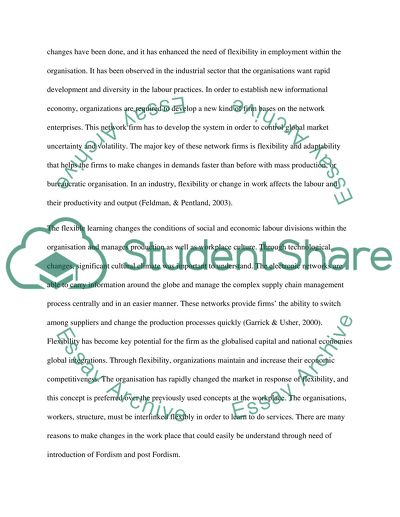Cite this document
(“Globalisation, Flexibility and New Work Management Practices Essay”, n.d.)
Retrieved from https://studentshare.org/sociology/1647693-globalisation-flexibility-and-new-work-management-practices
Retrieved from https://studentshare.org/sociology/1647693-globalisation-flexibility-and-new-work-management-practices
(Globalisation, Flexibility and New Work Management Practices Essay)
https://studentshare.org/sociology/1647693-globalisation-flexibility-and-new-work-management-practices.
https://studentshare.org/sociology/1647693-globalisation-flexibility-and-new-work-management-practices.
“Globalisation, Flexibility and New Work Management Practices Essay”, n.d. https://studentshare.org/sociology/1647693-globalisation-flexibility-and-new-work-management-practices.


